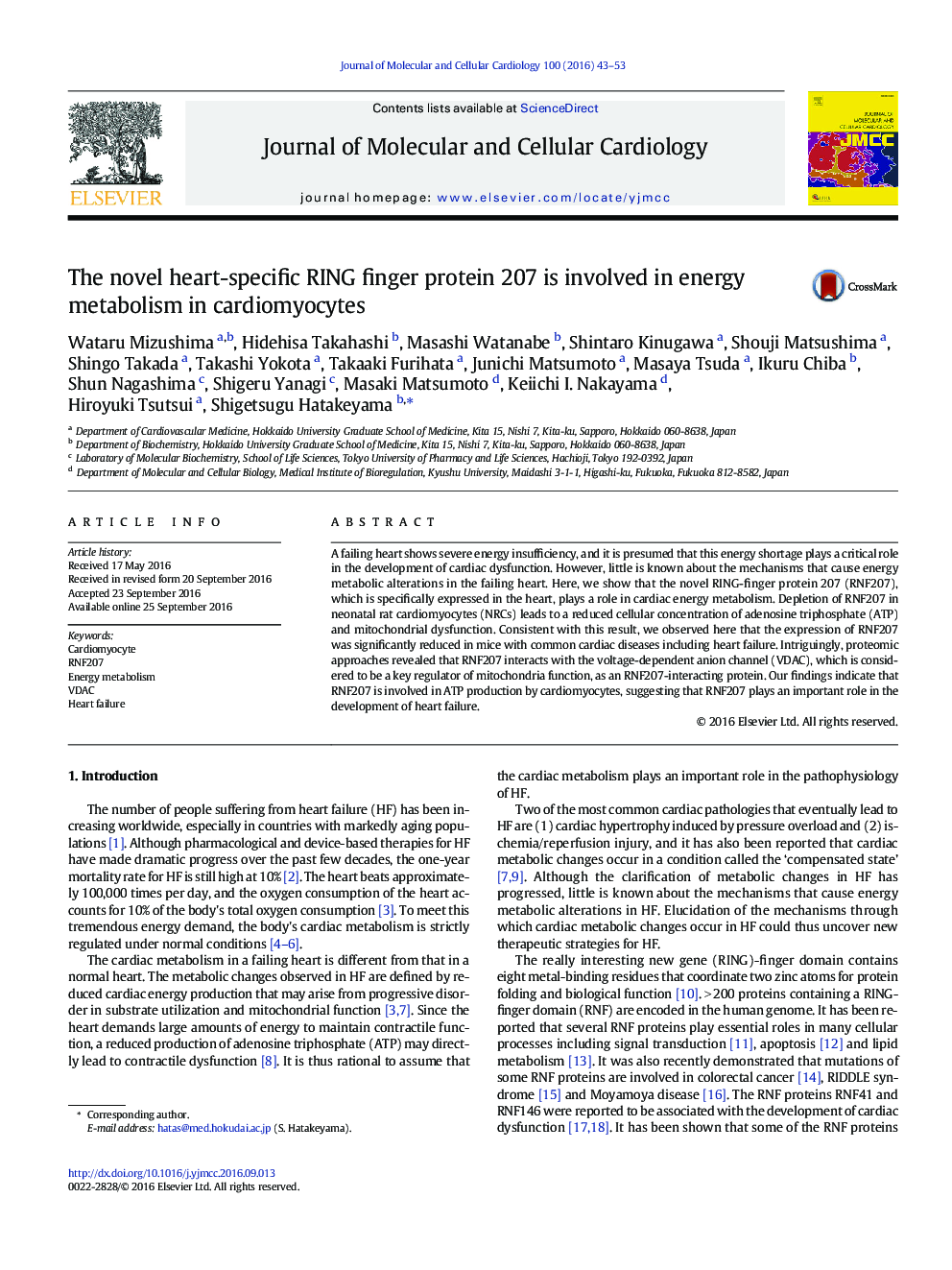| Article ID | Journal | Published Year | Pages | File Type |
|---|---|---|---|---|
| 5533642 | Journal of Molecular and Cellular Cardiology | 2016 | 11 Pages |
â¢RNF207 is specifically expressed in the heart.â¢RNF207 enhances activity of the tricarboxylic acid cycle in cardiomyocytes.â¢RNF207 directly interacts with VDAC1 through its coiled-coil domain.â¢Heart failure significantly reduces the expression of RNF207 in mice.
A failing heart shows severe energy insufficiency, and it is presumed that this energy shortage plays a critical role in the development of cardiac dysfunction. However, little is known about the mechanisms that cause energy metabolic alterations in the failing heart. Here, we show that the novel RING-finger protein 207 (RNF207), which is specifically expressed in the heart, plays a role in cardiac energy metabolism. Depletion of RNF207 in neonatal rat cardiomyocytes (NRCs) leads to a reduced cellular concentration of adenosine triphosphate (ATP) and mitochondrial dysfunction. Consistent with this result, we observed here that the expression of RNF207 was significantly reduced in mice with common cardiac diseases including heart failure. Intriguingly, proteomic approaches revealed that RNF207 interacts with the voltage-dependent anion channel (VDAC), which is considered to be a key regulator of mitochondria function, as an RNF207-interacting protein. Our findings indicate that RNF207 is involved in ATP production by cardiomyocytes, suggesting that RNF207 plays an important role in the development of heart failure.
